Mediseller is one of the leading global exporter, supplier, and distributors of specialty Medicines.
Don't wanna be here? Send us removal request.
Photo
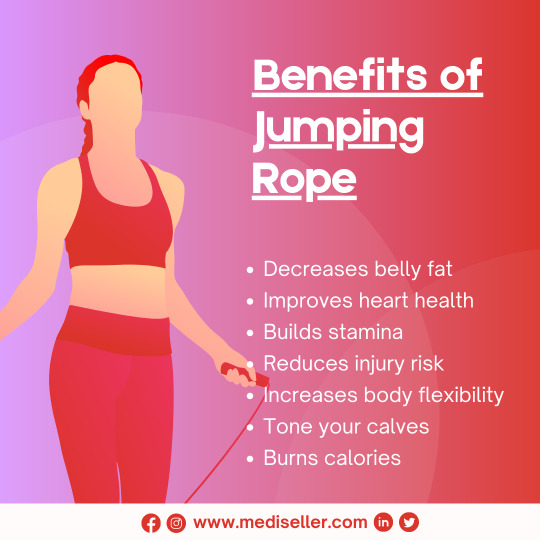
The benefits of jumping rope include burning calories, better coordination, stronger bones, and improved heart health. #jumping #Strongbones #healthyheart #burningfat #health #wellness #mediseller
0 notes
Photo
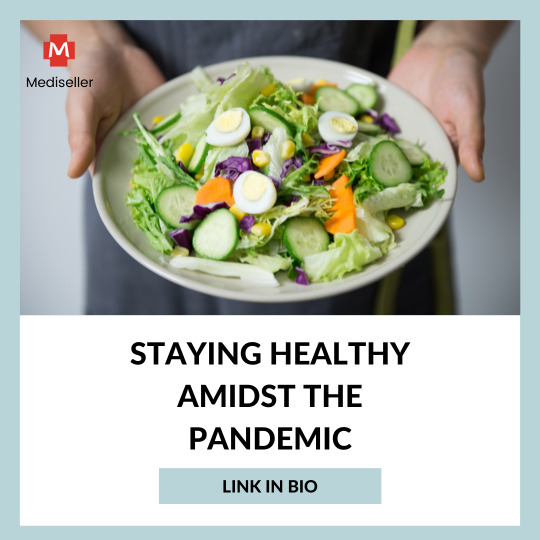
A healthy diet has been scientifically proven to provide numerous health benefits, such as reducing your risk of several chronic diseases and keeping your body healthy.
However, making major changes to your diet can sometimes seem very overwhelming.
Good health can usually be achieved through simple actions like having a balanced diet, regular exercise, and good sleep.
To know more check out the link in bio.
#wellness #betterhealth #functionalmedicine #holisticlifestyle #healthybody #naturopath #integrativehealth #healthcoach #healthymind #wellnessjourney #healthandwellness
0 notes
Text
Staying Healthy Amidst the Pandemic
Good health can usually be achieved through simple actions like having a balanced diet, regular exercise, and good sleep.
However, during the pandemic nothing is simple but staying healthy is crucial now. How can you achieve good health? How can you be healthy when you can’t step out of your house or when you rely on non-perishable goods for food? How can you sleep when anxiety doesn’t seem to go away?
Through the rest of this blog, we’ll be covering exactly how you can stay healthy amidst this global pandemic.

Nutrition
We all love to find comfort in a pack of potato chips or a double scoop choco chip ice cream, but depending on refined food can deteriorate your health.
The global pandemic and the drastic changes caused by it have put all of us under immense stress. Some - if not most - of us might resort to “emotional eating” to cope with this stress. However, it is imperative to practice self-discipline and plan your meals to combat stress eating.
Buy essential food products beforehand and avoid stocking up or panic buying.
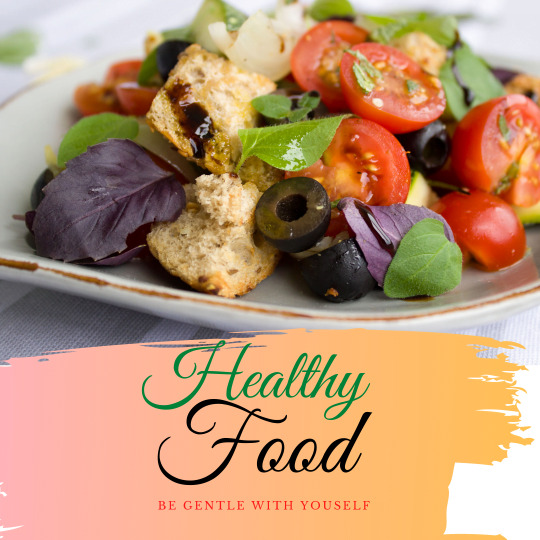
Here are some foods to add to your diet.
Get enough leafy greens: Green leafy veggies are packed with essential vitamins, minerals, and dietary fiber and enhance your immune system. Make it a habit to eat these regularly.
Fruits: Fruits can be excellent alternatives to satisfy your sweet tooth without worrying about overeating or weight gain. They are also rich in fiber, vitamins, and minerals just like vegetables.
Lean Meat: Lean meat like skinless chicken or trimmed red meat is an excellent source of protein. Protein keeps you fuller for longer periods and is essential for muscle growth and repair.
Additionally, red meat is rich in iron and helps prevent diseases like anemia. Try to get a couple of portions of lean meat every day.
Seafood: Seafood is a great source of Omega 3 fatty acids which can boost cognitive functioning. Avoid fish that may be high in mercury like shark, bluefin tuna, barramundi, or swordfish.
Carbs: Get enough carbs into your meals, these will help meet your energy requirements for the day and help you fight diseases effectively. Stay away from low carbohydrate diets for the time being.
Eating a healthy balanced diet is essential to maintain good physical health, but did you know that eating well can also improve your mental health?
You are what you eat. Your diet is an important factor in determining your health. A proper diet will help you maintain a healthy weight and prevent a wide array of diseases.
People who suffer from underlying conditions such as obesity or other chronic illnesses are at higher risk due to Covid. A healthy diet will be able to control obesity, diabetes, and cholesterol levels.
Try to read the labels before purchasing foods and cut down on foods with added sugar or refined food in general. Include more whole foods into your diet for a healthier, happier you.
Exercise
Recent studies have found that the risks of severe Covid outcomes were significantly lower in physically active adults. Several public health agencies promote Physical activity and recommend incorporating it into the daily routine.
Experts recommend at least 150 minutes of moderate to vigorous physical activity each week. But how can you achieve this when gyms are closed and you are maintaining social distancing?
You can take a walk or jog or ride a bike outside, as long as you stay around six feet away from other people. Many gyms do offer online virtual lessons to help you stay fit through the pandemic.
There are plenty of fitness apps and websites on the internet that can help you develop a good exercise regime at home.
True, working out at home has its drawbacks but you can still manage to get a satisfying workout experience at home with a tad of creativity.
A bucket filled with water or sand can be your kettlebell, a sturdy stool can be used for step-ups, a low-hanging branch in the yard can be your pull-up bar.
Besides, there are a ton of bodyweight workouts that pack the punch. Pushups, burpees, bodyweight squats, mountain climbers, and lunges can all be varied to activate different parts of your body.
Regular physical activity will also keep several other illnesses at bay and ensure that your body functions at its best.
Exercising releases endorphins that will help boost your mood and gives you a sense of control during these pressing times.
Sleep
Basketball legend Kobe Bryant used to preach the importance of waking up early and keeping a healthy sleep schedule, so much so that he gave it huge credit for his success.
Studies suggest that sleep and immunity depend on each other. Immune responses caused by an infection or any other illnesses can impact your sleep cycle. At the same time, good sleep can strengthen the immune system.
Good quality sleep can help develop a healthy balanced immune system that responds well to vaccines and displays adaptive immunity. While the amount of sleep required may vary from person to person, experts generally recommend getting 7 to 8 hours of sleep.
Developing a sleep routine also gives you a sense of normalcy and reduces stress to an extent. Sticking to the routine helps you sleep faster and get better quality of sleep.
Here are some tips to help you get good sleep.
Switch off electronic media: Get off electronic media at least an hour before you go to bed. Blue light emissions from electronic media can affect melatonin or the sleep hormone.
Good sleep hygiene: You can improve your sleep by practicing good sleep hygiene. This includes improving habits, routines, and a good sleeping environment.
Prioritize: Sleep, over everything else! Do not sacrifice your sleep for one more episode of your favorite series or another round of video games.
Breathe: Deep breathing and other meditative techniques have shown a positive impact on sleep. These techniques also help alleviate stress.
Stay hydrated
We know that staying hydrated is vital for overall good health. But did you know that staying optimally hydrated can also support your immune system?
Benefits of hydration
Here are some not so well known benefits of staying hydrated,
Blood volume
Blood plasma is made up of about 90% water and the immune system relies on blood to transport nutrients and fluids during infection.
Lymphatic system
Staying hydrated ensures the proper functioning of the lymphatic system. Lymphatic fluid is a colorless fluid made up of about 90% water. A good lymphatic system eliminates toxins, pathogens, and other waste from the body and plays a key role in the transport of white blood cells.
Managing Histamine
Dehydration may disrupt the levels of histamine in the body and aid its release. Histamine causes commonly seen allergic reactions like wheezing, rashes, and itching.
Preventing dehydration
Here are some tips to lower the risks of dehydration,

Cut down on caffeine and alcohol
Caffeine and alcohol can cause dehydration. Every drink of alcohol and caffeine has diuretic effects, meaning that they can increase water excretion.
For every glass of caffeinated drink aim to drink around one additional glass of water and for one glass of alcohol drink at least two additional glasses of water.
Reduce salt intake
We all love munching on a packet of Doritos or Pringles! But did you know that eating too much salt can cause your body to increase the frequency of urination to get rid of the excess sodium? While we need sodium for the proper functioning of the body, processed foods contain a ton of added sodium.
Drink At least 8 glasses every day
While the amount of water required by one individual varies from another, as a general rule of thumb aim to get at least 8 glasses of water.
Don’t wait till you are thirsty, spot other signs like dry lips or dark urine, and drink water accordingly.
Mental health
Stress, anxiety, and fear are natural responses to what we perceive as threats or during uncertain times.
The loneliness and isolation due to a lack of interaction with our loved ones add to our worries. Drastic changes in our daily routine, the new realities of virtual classes, work from home, temporary unemployment, and financial constraints can all deteriorate our mental health.
A healthy mind is essential to have a healthy body and vice versa, so it is important to take care of your mental health.
Here are some tips to maintain good mental health.
Relax: Every day find some time to do stuff you love. No matter how hectic it gets, sing, dance, watch a movie, read a book, or do anything you love!
Meditation: Meditation or mindfulness techniques like Yoga, Tai Chi, or Pilates can help reduce stress and anxiety. They can lower blood pressure, improve your sleep, and improve your mental health.
Take breaks: Online classes, Work-from-home, and binge-watching your favorite shows have one thing in common, sitting or lying for long hours at a stretch.
Take breaks occasionally and stretch your body. Going for a small stroll or meditating can help too.
Click here to read more about Coping with stress during the pandemic.
0 notes
Photo

Erectile dysfunction is the most common sex problem that affects as many as 30 million men across the globe. Here are six major causes of Erectile Dysfunction.
0 notes
Photo

Myths about Covid have been going around Social Media platforms and websites over the internet. Fact check your information before sharing and rely on credible sources for information. Let's fight against the Covid pandemic by fighting this Infodemic. To know more about Covid myths and the Infodemic check out the link in bio.
1 note
·
View note
Text
Dealing with Diabetes Type 2
Constantly having to check your blood sugar levels, always being wary of what you eat, and the expensive medications that you have to take can make dealing with Diabetes stressful, overwhelming, and emotional at times.
Through the rest of this blog, we'll take you through some tips to help deal with diabetes type 2. But before we proceed, let’s first understand what type-2 diabetes is.

What is Diabetes Type-2?
Type-2 Diabetes is a chronic metabolic condition where the body fails to utilize the insulin produced, or in other words, the body becomes resistant to insulin. Type-2 is the most common type of diabetes, usually seen in middle-aged or older people.
The human body produces insulin, which works to metabolize glucose in the body to produce energy. People affected by type-2 diabetes produce insulin however, the body cells do not utilize it effectively, causing sugar level spikes.
Type-2 diabetes could be caused by obesity, metabolic syndromes, or broken beta cells or can be passed down genetically.
Dealing with Diabetes Type-2
Managing Diabetes may feel overwhelming at times, but your choice to put yourself on a path to better health does not have to be. Dealing with diabetes is about making those simple healthy choices.
A combination of lifestyle changes, medication, and determination will aid in maintaining a healthy blood sugar level. It takes dedication and time, but prioritizing those changes will help reduce or avoid severe complications due to diabetes.
If you are ready to make those choices, here are some tips to help you get better health.
Lose those extra pounds
Being overweight is one of the key factors for diabetes. No, you don’t have to hit the gym six days a week and build a shredded body.
All you have to do is quit being a couch potato, get active, and lose that extra weight you carry. Extra weight in our bodies is stored as fat. Excessive fat may disrupt the normal functioning of vital organs, worsening the progression of diabetes.
Physical activity for around 30 minutes every day, can stabilize blood sugar levels and aid weight loss.
Exercising is not a punishment. If it feels like a punishment, chances are that you will give up too soon. So find something that you enjoy doing.
You are what you eat.
Controlling your diet and making healthier mealtime choices go a long way in the fight against Diabetes.
Diet is as simple as reducing your simple carb intake and replacing it with more complex carbs.
Complex carbs contain more nutrients and are more filling than their simpler counterparts.
Foods that contain added sugar can be detrimental to your health and should be avoided. Some common foods to avoid are soda, ice cream, cookies, pastries.
The idea is not to cut out simple carbs entirely but rather to find the right type of carbs. For example, the next time you get a craving for sweets, have some fruit instead of a pastry.
Build a support system
Managing diabetes can often be emotional. You may not feel like showing it, but it is essential to acknowledge your feelings.
Sometimes venting about how you feel can make you feel a lot better. Get support from your family, friends, or healthcare providers.
You can make healthy food choices a family thing and eat healthy meals together. You could get a couple of friends to join you with your exercise routine.
Dealing with stress
Having Diabetes can be stressful. Check blood sugar levels frequently, taking meds on time, and making healthy decisions are all in a day's work for you. Oftentimes, this may feel like a lot to deal with and result in what is known as diabetes distress.
The good news is that there are ways you can cope with diabetes distress.
Talk to your healthcare providers. They can help you solve your concerns and suggest counseling if you need it.
Get into a support group. Joining a support group and spending time with people who are more or less on the same page with you can be a great relief.
Managing expenses. A major cause of worry during diabetes is the treatment expense. Talk to your doctor about any government programs that aid diabetes patients.
Final thoughts
Educating yourself about diabetes and clearing any doubts you have with your healthcare provider will make it feel less overwhelming.
Diabetes is a progressive disease, the earlier you detect and the earlier you step up and take action, the better.
For More Information of Healthcare Products
please contact the Following us:
Phone Number: +91-9667733026 E-mail: [email protected] [email protected] Visit Website: https://www.mediseller.com/
0 notes
Text
All you need to know about Covid vaccines
Hailed as a breakthrough in the fight against Covid-19, major pharmaceutical giants started rolling out vaccines around the start of this year. Various government agencies around the world have started mass vaccination campaigns in a bid to end the pandemic.

Amidst this ray of hope, it is unfortunate that some people spread misinformation, creating mass hysteria. Numerous myths have circulated the internet as if they are scientific facts. The common man finds it increasingly difficult to figure out what to believe and what not to believe.
On our Quora handle, we have been getting numerous requests about Covid vaccines, which motivated us to compile all the information on Covid vaccines we have gathered from trusted sources.
Overview
According to the WHO, about 13 vaccines on 4 different platforms are administered all over the world. Safe and effective vaccines can be huge game-changers in the fight against Covid, however, continue to wear masks, maintain social distancing and follow all Covid protocols.
Covid vaccines can be classified into 4, based on the platform they use.
mRNA Vaccines
mRNA vaccines deliver genetic instruction to the cells in our body via nanoparticles. This causes the cells to produce the SARS-CoV-2 spike protein which prepares the immune system for an actual Covid infection.
Pfizer-BioNTech and Moderna vaccines come under this type of vaccine and have proven to have very high efficacy.
Adenoviral Vector Vaccines
The common cold virus is used as a vector to deliver instructions to the cells to produce SARS-CoV-2 spike protein. This prepares the immune system for an actual infection.
Currently, Oxford-AstraZeneca and Janssen utilize this relatively new technology in their vaccines. Reports of blood clot formation from across the globe have raised safety concerns and caused panic among people.
Protein-based Vaccines
Vaccines like Novavax and GSK/Sanofi directly introduce the spike protein into the body along with adjuvants to prepare the immune system in case of future infections.
Inactivated whole virus Vaccines
As the name suggests, these vaccines introduce inactivated SARS-CoV-2 viruses into the body along with adjuvants, gearing up the immune system against potential infections. Vaccines like Sinopharm or Covaxin use this technology.
Effectiveness and efficacy of vaccines
There are numerous instances of people comparing vaccines based on their efficacy. But is it possible to determine the best vaccine by merely comparing its efficacy?
Unfortunately, it isn’t as simple as that. To know why we must first understand the difference between effectiveness and efficacy.
Suppose during a clinical trial, 100 people were vaccinated and at the end of the trial, about 88 showed no presence of Coronavirus. Then the efficacy of the vaccine is 88%.
However, it is to be noted that these trials are carefully designed and usually run on otherwise healthy individuals.
Now when we apply the vaccines to the general population, people with underlying issues are also vaccinated.
Therefore, the clinical efficacy may not necessarily translate to the effectiveness of the vaccine.
The effectiveness of a vaccine is generally measured by what is known as observational studies. The number of unvaccinated people who have tested positive is compared to the number of people who develop the disease despite getting vaccinated to determine the effectiveness.
Even vaccines without high effectiveness have proven to be useful in the past.
Safety Concerns
The COVID vaccines approved by WHO are safe and effective. Although there may be side effects in some cases, vaccines significantly increase your immunity against COVID-19 and prevent severe symptoms and fatalities.
AstraZeneca Blood clots
The blood clots or thrombosis with thrombocytopenia syndrome (TTS) caused by AstraZeneca Covid-19 vaccines are rare. Only about 1 in 88,000 or so are reported to have TTS.
Although reports from Europe earlier suggested that 20% of TTS cases were fatal, newer reports from Australia put fatality to about 4% only.
These newer reports suggest that the fatality due to TTS is just about 0.00005% if they have taken the AstraZeneca vaccine.
Covid infections due to vaccines
A lot of misinformation is spread across various social media platforms suggesting that Covid vaccines may cause Covid infections.
But as you can see above, none of the vaccines contain the live SARS-CoV-2 viruses. Hence, these reports are baseless.
Side-Effects
As with any medicine, vaccines may also cause side effects. These are normal and go away on their own. Commonly seen side effects include:
Reaction at injection site including swelling, pain, or redness.
Flu-like symptoms including chills, fatigue, joint pain, headache, mild fever, muscle ache.
In some cases, vaccines may cause an allergic reaction called anaphylaxis. These are usually seen within 15 minutes of administration and can be treated.
Bottom Line
The WHO-approved vaccines are safe and effective in boosting immunity against the coronavirus. Even though they do not offer full immunity from Covid, the severity of symptoms drops significantly in vaccinated individuals.
Even after getting vaccinated do wear masks, maintain social distance and follow all other necessary protocols as issued by your local government.
Mask up and have a good day.
For More Information of Healthcare Products
Please contact the Following us:
Phone Number: +91-9667733026, +91-7303072644 E-mail: [email protected] [email protected] Visit Website: https://www.mediseller.com/
0 notes
Photo

Every year, June 8 is commemorated as World Brain Tumour Day to spread awareness about a brain tumour. On this World Brain Tumour Day, we at Mediseller pay tribute to brain tumour patients and their families, along with healthcare professionals and researchers.
0 notes
Photo
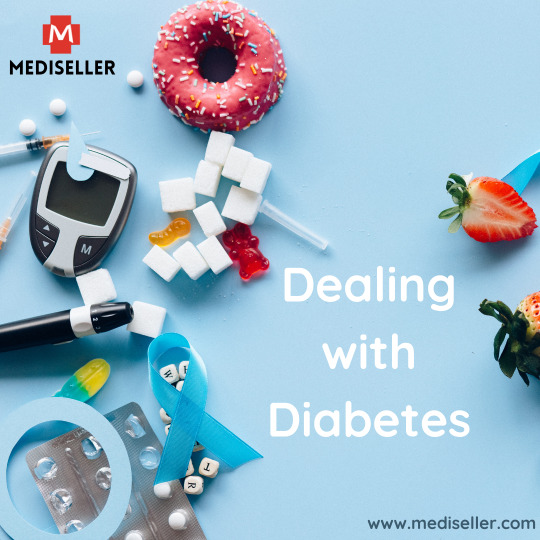
Dealing with diabetes can be overwhelming at times. A combination of lifestyle changes, meds, and dedication will help you maintain a healthy blood sugar level. To know more about how you can deal with diabetes, check out the link in bio.
0 notes
Text
What is covid?
Coronavirus disease (or COVID-19) is a highly infectious disease caused by the recently discovered SARS-CoV-2 virus. The first known case of Coronavirus was identified in Wuhan, China in 2019.
You might be wondering why write an article on COVID this late? We’ve been living with and fighting COVID-19 for more than a year now and you’d expect the general public to be aware of what COVID is and how to stay safe.

Unfortunately, a large chunk of the population is still unaware of what exactly COVID-19 is or what it does to you. To top it off, a lot of misinformation is spread across social media causing mass hysteria. bel
Overview
The SARS-CoV-2 virus or severe acute respiratory syndrome coronavirus 2 belongs to the family of coronaviruses. Coronaviruses are generally not dangerous even though some cause infections.
However, the SARS-CoV-2 virus is highly contagious and spreads through person-to-person contact. It causes severe infection in the respiratory tract either an upper respiratory tract infection or a lower respiratory tract infection.
SARS-CoV-2 is one of the seven identified types of coronavirus. Coronaviruses are responsible for diseases like MERS( Middle East respiratory syndrome) and SARS (Severe acute respiratory syndrome).
Symptoms
Symptoms of Covid-19 vary and sometimes it can even be asymptomatic, which makes Covid extremely dangerous. However, the commonly seen symptoms include,
Fever
Cough
Headache
Fatigue
Breathing trouble
Loss of smell and taste
Chills
Body Aches
Sore throat
About a third of patients showed no symptoms. Whereas, amongst the ones who developed symptoms 81% had mild symptoms sometimes leading up to mild pneumonia.
14% of patients with symptoms had severe symptoms like hypoxia or dyspnea. The rest showed critical symptoms including, multiple organ failure and respiratory failure.
Symptoms alone cannot be used to confirm or deny the presence of Covid. Diagnosis of Covid is therefore done via tests like nucleic acid tests.
Covid Strains and Variants
Mutations in a virus result in what is called a variant. Strains and variants are often used interchangeably and are almost similar except for very subtle differences. Strains tend to behave differently from the parent virus while variants differ only by structure.
As of now, three major variants of Covid-19 have been detected, namely the UK variant, Brazilian Variant, and South African Variant.
Preventing Coronavirus
Preventing the spread of Coronavirus is vital to put this pandemic to an end. Following some simple and effective methods in combination will significantly reduce your chances of contracting the virus.
Wear a mask
Studies show that facemasks are about 79% effective in preventing the transmission of Coronavirus. Exercise caution while wearing and taking off masks. Sanitize your hands before and after touching a mask.
Wear the mask so that it covers your mouth and nose, tie it behind your head, keeping it snug. Medical experts recommend that everyone above two years wear masks in public.
Wearing masks does not mean immunity from Covid-19, so follow other Covid protocols as well.
Social Distancing
Coronavirus is spread from person to person contact, mainly through the air we breathe. But experts suggest that coronavirus only travels less than 6 feet through the air. So maintaining a distance of 6 feet from others will to a fault reduce the chances of contracting Covid-19.
People with no symptoms may also carry the virus, hence make no exceptions.
Avoid crowds
Do not step out of your house unless necessary and avoid crowded places if you do go out.
Poorly ventilated spaces may potentially still carry the virus, so avoid those too.
Maintain good hygiene
Wash your hands with soap regularly. Use a sanitizer if you can't access soap and water.
Wash your hands after you have sneezed, coughed, or been in a public place. Wash your hands thoroughly before eating or preparing food, touching your face, handling masks, or caring for a sick person.
Carry surface disinfectants to disinfect any object or surface in a public place before touching them.
Get Vaccinated
Covid-19 vaccines approved by the WHO or your government healthcare department will help keep Covid-19 at bay. However, do not stop following Covid protocols even after getting vaccinated; one can never be too careful.
Final thoughts
Following all of these methods will ensure your safety from Covid-19 to a large extent. But it is common to be careless at times, so always have an eye on your general health. If you notice any symptoms, do get medical help as soon as possible.
For More Information of Healthcare Products
please contact Following us:
Phone Number: +91-9773529259, +91-7303072644 E-mail: [email protected] [email protected] Visit Website: https://www.mediseller.com/
0 notes
Photo


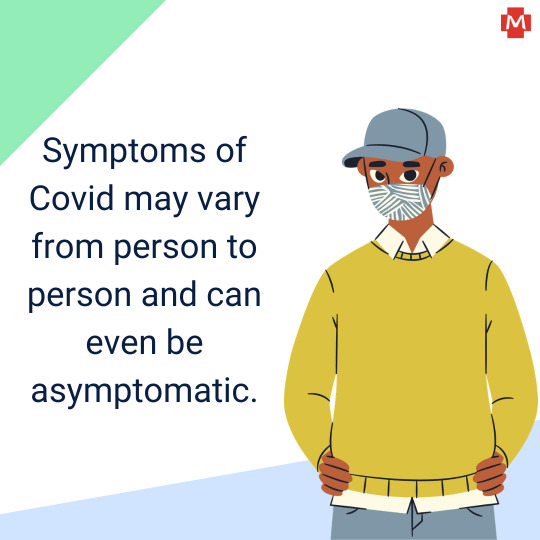
Let us work together with our healthcare system to put an end to this global pandemic.Going out to get meds may be like walking into a minefield. But we got you covered.Contact us on our WhatsApp number +91 9667733026 or head on to our website for any pharmaceutical requirements.
0 notes
Photo

Tobacco is injurious to the human body irrespective of how it is consumed.This World No-Tobacco Day let us pledge to work everyday a No-Tobacco Day. Quit smoking and help your peers quit.
0 notes
Text
HIV and AIDS treatment and prevention
According to UNAIDS, around 38 million people across the world were living with HIV in 2019. In the same year, reports suggest about 1.7 million new cases across the globe, a decline of 23% compared to 2010. Although these numbers are staggering, HIV/AIDS is no longer the death sentence that it once was.

HIV or human immunodeficiency virus weakens our immune system by targeting and destroying white blood cells that fight infections. HIV increases the risk of developing other illnesses and can soon progress to AIDS without proper treatment.
AIDS or acquired immunodeficiency syndrome is a chronic and life-threatening condition, the last stage of HIV infection.
Today with the progress in medicine, people diagnosed with HIV can live as long as those without HIV. Similarly, the life expectancy of those living with AIDS has gone up considerably.
HIV/AIDS Treatment
The first step towards treating HIV/AIDS is detecting it. The earlier you diagnose, the better. Let us first take a peek into how you can diagnose HIV/AIDS.
Diagnosing HIV
You cannot depend on symptoms to tell you if you have HIV. The only sure-shot way to know your HIV status is by getting tested.
There are three primary tests for HIV,
Nucleic Acid Test or NATs
Antigen Tests
Antibody Tests
If you doubt having contact with someone with HIV, seek help immediately. The initial test will be an antigen or antibody test like ELISA. These tests check for antigens or antibodies that your body develops to fight HIV.
If you test positive for the initial test, your healthcare provider runs a follow-up test such as a NAT. A nucleic acid test searches for the specific virus and allows them to be sure that the diagnosis is correct.
Treatment
Although there is still no cure for AIDS, modern medicine can now slow the progression of the disease to a large extent. These medications and therapies have considerably reduced the number of deaths due to HIV/AIDS.
Antiretroviral Therapy
The most effective treatment for AIDS today is Antiretroviral Therapy or ART, which is a combination of numerous medicines. ART prevents the patient from developing resistance to any particular drug while slowing the spread of the virus and reducing the amount of virus (viral load) in the body.
Today there are several types of Antiretroviral medications available, including:
Protease Inhibitors: HIV requires an enzyme called protease to multiply. These meds bind to this enzyme and prevent growth.
Integrase Inhibitors: Integrase is another enzyme that is essential for HIV to multiply. Integrase Inhibitors bind to Integrase and prevent replication of the virus. Doctors often suggest these as the first line of treatment for HIV patients due to their effectiveness in stopping the virus.
Nucleoside and nucleotide reverse transcriptase inhibitor: These meds block another enzyme called Nucleoside or Nucleotide reverse transcriptase.
Entry Inhibitors: Entry Inhibitors prevent HIV from entering the cells (T cells in particular), thus prevents replication of the virus.
PEP Emergency Pills
If you suspect you have come in contact with HIV, get in touch with a healthcare provider immediately. Your healthcare provider depending on the situation may prescribe PEP or post-exposure prophylaxis pills.
Although they aren't 100% effective, consuming PEP pills within 72 hours of exposure significantly reduces the risk of getting infected.
These pills fight the infection and stop the spread of the virus in your body.
HIV/AIDS Prevention
To date, we have not discovered a vaccine to prevent an HIV infection. However, there are some practices you can adopt to prevent an HIV infection.
TasP
TasP or Treatment as Prevention refers to medications taken to prevent the sexual transmission of HIV.
HIV patients who effectively take TasP medications as prescribed have a minimal risk of transmitting HIV.
Barrier protection
Using barrier protection such as condoms can considerably reduce the risks of contracting HIV infections. Using a new latex condom every time you have sex and choosing a water-based lubricant, if appropriate, can prevent HIV and other STIs.
PrEP
Persons having high risks of being exposed to HIV can take PrEP or pre-exposure prophylaxis medications.
Other Methods
If you have paid attention in sex-ed classes, you might remember some ways to prevent STIs. These methods are also applicable in the prevention of HIV. Below are some additional preventive measures you can take,
Do not share needles. If you need syringes to inject drugs, use sterile and clean syringes.
Know your partner's HIV status.
Limit exposure to bodily fluids that may carry HIV.
For More Information of Healthcare Products
please contact Following us:
Phone Number: +91-9773529259, +91-7303072644 E-mail: [email protected] [email protected] Visit Website: https://www.mediseller.com/
0 notes
Photo

Mediseller wishes you a Happy Buddha Purnima
0 notes
Photo


According to UNAIDS, around 38 million people across the world were living with HIV in 2019. In the same year, reports suggest about 1.7 million new cases across the globe, a decline of 23% compared to 2010. Although these numbers are staggering, HIV/AIDS is no longer the death sentence that it once was.
To know more about HIV/AIDS treatment and prevention: https://www.mediseller.com/HIV-and-AIDS-treatment-and-prevention
0 notes
Text
Atorvastatin(Lipvas 10), Overview and Myths
Lipvas 10
Lipvas is the brand name under which Cipla Limited sells the lipid-lowering drug Atorvastatin. Studies show that along with a proper diet, Atorvastatin decreases LDL, triglycerides and raises HDL or the "good" cholesterol.
Through the rest of this article, we will take a deeper look into the uses, side effects, risks, and some common myths associated with Lipvas.
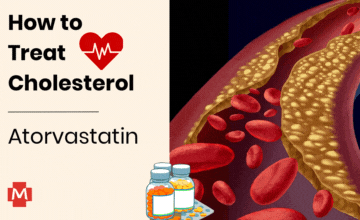
Overview
Discovered in 1985 by Bruce Roth, Atorvastatin belongs to the statin class of drugs. Atorvastatin is marketed under other brand names Lipitor and Atorva.
When used as an adjunct to proper diet and exercise, Atorvastatin produces good results in controlling cholesterol and fat levels. Lipvas 10 contains 10mg of Atorvastatin.
Uses
Lipvas decreases the risk of heart disease.
It also decreases the risk of having a stroke or heart attack in patients with diabetes.
Lipvas is used to treat heterozygous familial hypercholesterolemia in adolescents.
It also reduces the progressive decline of kidney function in people with cardiovascular disease.
How does Lipvas work?
Lipvas blocks 3-hydroxy-3-methylglutaryl coenzyme A or HMG-CoA reductase in the liver. This property reduces production and aids in the removal of bad cholesterol in the body.
Your cholesterol level usually starts going down in about two weeks.
Side effects
Lipvas may cause some common side effects such as,
heartburn
gas
fatigue
muscle pain
joint ache
hyperglycemia
constipation
nausea
Severe side effects due to Lipvas are rare. However, the reported severe issues include,
Type 2 diabetes mellitus: seen in very few people.
Memory loss and confusion: rarely reported.
Liver damage and increased creatinine levels.
Allergic reactions: Lipvas can cause severe allergic reactions like
swelling of the face, tongue, or throat
breathing difficulty
swelling or peeling of skin
blistering of the mouth, genitals, or skin
rash or hives
Bleeding or Bruising
The risk of developing any severe side effect is heavily outweighed by the benefits that Lipvas can produce.
Risks to consider
Allergic reactions: Lipvas may contain inactive ingredients, which can cause allergic reactions.
If you have a history of liver disease or kidney disease, talk to your doctor.
Older adults may be prone to its side effects.
Avoid Lipvas if you are pregnant. Atorvastatin can harm the baby, so discuss with your doctor if you plan on having a child.
Consuming alcohol while on Lipvas might cause severe liver problems.
It can interact with a wide array of medications, some may even have serious repercussions. Discuss with your doctor about all medications you take.
If you are having surgery, inform your doctor or dentist about Lipvas.
Myths
Being one of the most popular drugs to lower cholesterol, Lipvas or Atorvastatin often finds itself at the end of heated debates over its efficacy and the "harms" it causes.
Let's take a look into some common myths and separate fact from fiction.
Myth #1. Atorvastatin causes cancer.
Apart from urban myths, no convincing evidence links Atorvastatin usage to cancer. On the contrary, studies show that Atorvastatin may have a protective effect against some types of cancer. In type 2 diabetes patients consuming statins, the risk of contracting cancer decreased drastically.
Myth #2. Atorvastatin causes drowsiness
Atorvastatin does not induce sleep. Talk to your doctor about other meds that you consume.
Myth #3. Atorvastatin causes Erectile Dysfunction.
False: Atorvastatin may in fact improve erectile function due to reduced cholesterol levels. It also aids in the recovery of erectile function in men after prostate surgeries.
Bottom line
Lipvas 10 is an effective medication to control and manage cholesterol levels. Discuss about the risks, side effects and any other concerns you may have to your doctor. If your doctor prescribed you Lipvas, it is probably because they have deemed it more beneficial to you than the harm it might cause. Have a good day.
For More Information of Healthcare Products
please contact Following us:
Phone Number: +91-9773529259, +91-7303072644 E-mail: [email protected] [email protected] Visit Website: https://www.mediseller.com/
0 notes
Photo


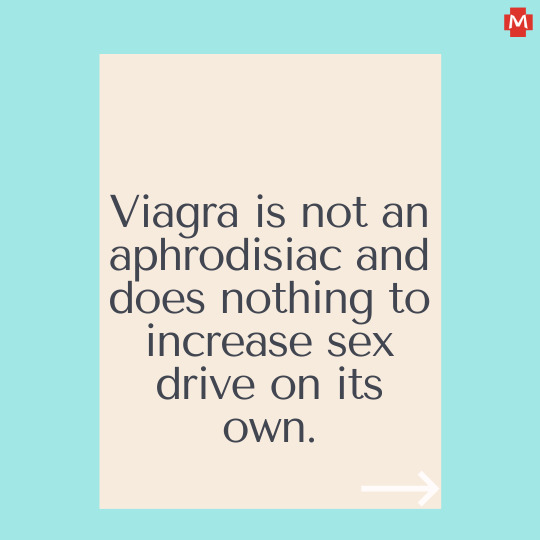


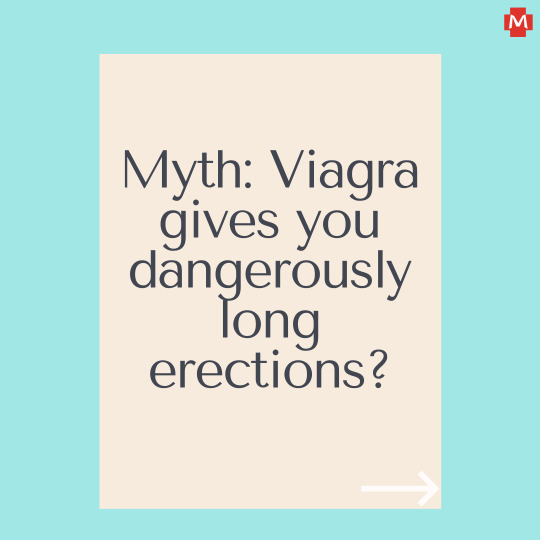

Here we have debunked some common myths about Viagra (Sildenafil).Bonus fact: Did you know that the CIA used VIAGRA to fight against the Taliban?Viagra is one of the most sold pharmaceutical drugs in history. Also known as the blue pill, Viagra is used widely to treat Erectile Dysfunction in men.Tap on the link in our bio to know more.
#erectiledysfunction#erectiledysfunctiontreatment#bluepill#sildenafil#mythsdebunked#myths#mediseller
0 notes